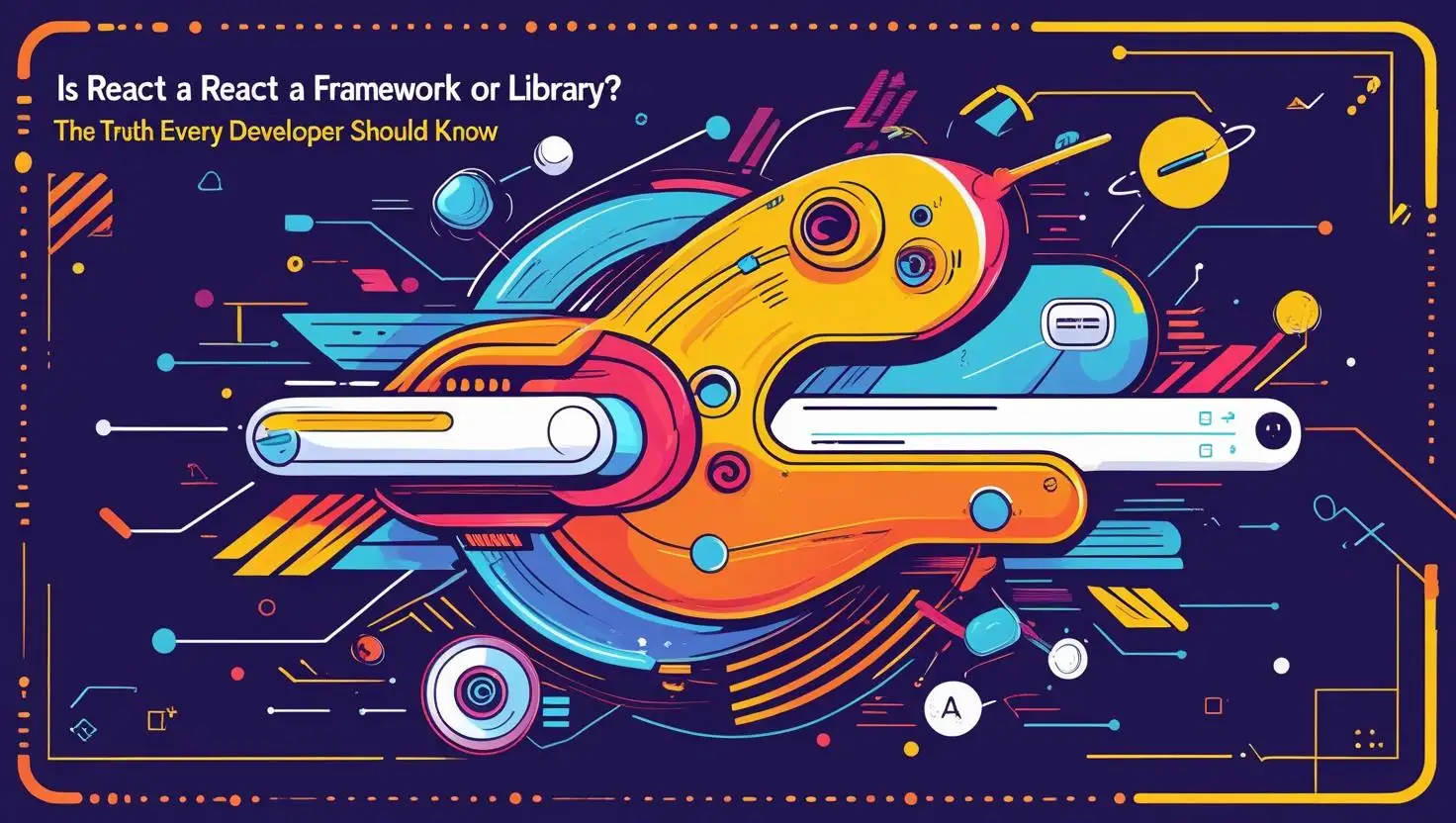Is React a Framework or Library? The Truth Every Developer Should Know

Hello! I’m Somen, and I’m really glad you stopped by today. As a fellow tech enthusiast and someone who loves to teach, I know how confusing it can get when terms like library and framework are thrown around—especially when we talk about React. In this blog post, called “Is React a Framework or Library? The Truth Every Developer Should Know”, I’ll clear up this classic debate once and for all. My goal is to help you truly understand what React is, the difference between a framework and a library, and why it even matters in your coding journey. By the end, you’ll have clarity and confidence to use React (and talk about it!) the right way.
What Does It Mean: Framework vs. Library?
Definitions Made Simple
Let’s break things down with simple definitions. Imagine you want to build a house:
- A library is like a toolbox. You pick and use the right tools when you need them. The control stays with you.
- A framework is like hiring a construction manager. The manager tells you when and how to use specific tools, guiding the whole process.
In the world of web development, these words matter because they define how much power—and responsibility—you have over your project. If you’ve ever wondered if React is a framework or just a library, you’re not alone! Many beginners (and even experienced developers) get mixed up. So let’s put it in a quick table:
| Aspect | Library | Framework |
|---|---|---|
| Control | In your hands—you call the code | Framework calls your code (Inversion of Control) |
| Flexibility | Choose what you want, where you want | Need to follow the framework's rules |
| Learning Curve | Usually easier for beginners | Can be more complex |
| Examples | React, Lodash | Angular, Vue.js |
This makes it a little easier to see where React fits, doesn’t it?
Why Does This React Debate Matter?
Clarity for Your Coding Journey
At first glance, knowing whether React is a framework or a library might seem like a small detail. But as a developer or learner, this is very important because it shapes skills you choose to pick, the way you work with React, and even how you explain projects in interviews.
- Knowing React is a library means you understand it gives you building blocks. You decide how to put things together.
- If you thought React was a framework, you might expect it to manage everything—routing, data handling, and more—which isn't the case out of the box.
The Truth: What React Really Is
So, what’s the real answer? React is a library, not a full framework. React was designed (by Facebook) to help you build user interfaces, especially dynamic & interactive ones. It solves the problem of updating UI easily when your data changes. But—and this is key—it leaves many other choices up to you! For example, if you need routing or managing data (state), you’ll need to bring in extra libraries like React Router or Redux. Unlike full-fledged frameworks such as Angular, React doesn’t control your complete project structure.
With React, you have the freedom to organize, scale, and add new features just how you like. Many developers love this flexibility, especially when learning or working on creative projects. But it also means you need to decide which extra tools (or “libraries”) to use alongside React.
How Should Developers Use This Knowledge?
Applying the Right Mindset
If you’re just starting out with React, here are a few friendly tips from me as your tech teacher:
- Think of React as a super-smart set of building blocks for your web interface. You get to decide what your project looks like and how to expand it.
- When you need special features—like navigation or complex data—look for other lightweight tools, rather than expecting React to do everything itself.
- This “pick what you like” approach is perfect for learning modern web development and growing your creative skills and design skills.
When Might the Confusion Happen?
Sometimes, because the React ecosystem is so big and because you can combine it with many supporting tools (like Next.js or Gatsby), people start calling React a framework by accident. But remember, those other tools add framework-like features—React itself stays a UI library at its heart.
Why SEO and Industry Jargon Matters
Even if you’re interested in topics like SEO or aspiring towards artificial intelligence, knowing the right technical terms will help you learn faster and communicate clearly with other developers and teams. As you grow in areas like digital marketing or branding, using these distinctions can even help with your online presence.
Conclusion
I hope this friendly guide helped make the “React: Framework or Library?” debate easier for you to understand. The truth is, React is a library—a flexible, powerful tool that gives you control over your web projects. You now know not only what this means but also why it matters and how to confidently apply this knowledge to your learning or professional path. If you’re curious for more tips and insights, head over to our latest blog articles anytime—and keep asking great questions!
Written by Somen from MATSEOTOOLS
 Some Question
Some Question


